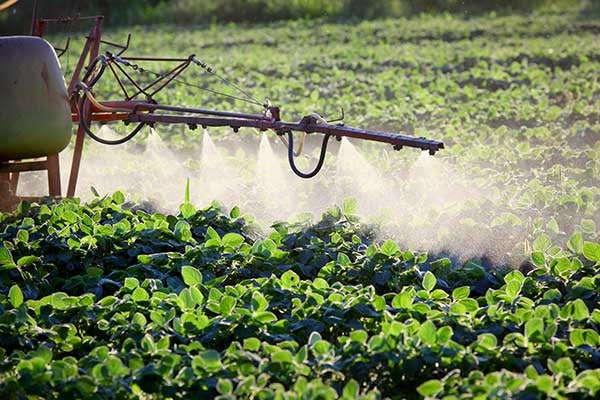Parker receives grant to study mechanics behind ‘dicamba drift’
Kim Parker received $250,000 from the Herman Frasch Foundation for Chemical Research to investigate how to limit the unintentional spread of the powerful herbicide, dicamba

While the popular herbicide dicamba is excellent at protecting crops from weeds, it can damage plants that can’t tolerate it. Despite efforts to apply the chemical as precisely as possible, there’s a risk that it may migrate to neighboring crops through the atmosphere.
The primary method of limiting the spread of dicamba is by mixing it with other chemicals, typically amines, that can “lock” the dicamba in place and prevent it from volatizing and becoming a gas.
Kim Parker, assistant professor of energy, environmental & chemical engineering in the McKelvey School of Engineering at Washington University in St. Louis, has received a five-year, $250,000 grant from the Herman Frasch Foundation for Chemical Research to investigate the chemical processes involved in these mixtures and identify the most effective ones.
“We're trying to understand how amines work to control dicamba volatilization,” Parker said. “Other chemicals, like different herbicides, are also included in the mixtures. We need to understand how these chemicals interact to contribute to the dicamba volatilization.”
Parker also plans to study how different sources of water can affect the volatilization of dicamba.
“I'm an environmental engineer by training, and I think there's a lot about the environment that hasn't been considered yet in regard to drift issues,” Parker said. “A farmer may use surface water or they might use groundwater. Those waters have different chemistry that might affect how dicamba behaves. We want to think more holistically about the different environmental factors that play a role in dicamba volatilization.”
The Herman Frasch Foundation aims to support research in the field of agricultural chemistry that will be of practical benefit to the agricultural development of the United States. Competitive grants are awarded every five years to researchers early in their career. Marcus Foston, associate professor of energy, environmental & chemical engineering, was among the previous class of awardees. Foston used his grant to design a new type of catalyst that turns wasted plant material into a product that can be used for renewable chemical and material production.




